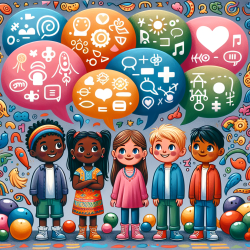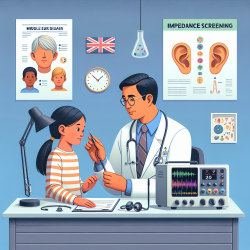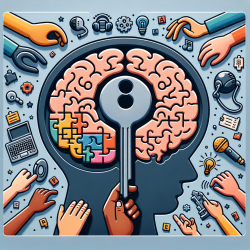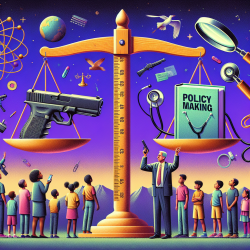Introduction
In the realm of speech-language pathology, the ability to empathize with clients is crucial for effective therapy. However, traditional Western models of empathy, which often emphasize individualistic perspectives, may not suffice in culturally diverse settings. The research article "Empathy across cultures – one size does not fit all: from the ego-logical to the eco-logical of relational empathy" by Eichbaum et al. (2022) challenges this conventional approach and introduces the concept of "relational empathy." This blog explores how practitioners can enhance their skills by adopting relational empathy, ultimately leading to improved outcomes for children.
Understanding Relational Empathy
Relational empathy, as proposed by Eichbaum et al., shifts the focus from an individualistic (ego-logical) to a contextual (eco-logical) approach. It emphasizes understanding and co-creating meaning with clients through curiosity, sensitivity, and humility. This approach is particularly relevant in intercultural contexts where traditional empathy models may lead to misunderstandings or "empathy disjunctions."
Implementing Relational Empathy in Practice
For speech-language pathologists working with children from diverse cultural backgrounds, implementing relational empathy involves several key strategies:
- Cultural Capability: Move beyond cultural competence to cultural capability by engaging in ongoing cultural learning and immersion. This involves recognizing and respecting cultural differences in communication styles and values.
- Curiosity and Inquiry: Foster an attitude of curiosity towards the child's cultural background and family dynamics. Engage in open-ended questions and active listening to understand the child's perspective and context.
- Epistemic Humility: Acknowledge the limitations of one's own cultural understanding and be open to learning from the child's cultural context. This humility can bridge gaps in understanding and build trust with clients and their families.
- Democratizing Power Dynamics: Work towards equalizing power dynamics in the therapeutic relationship by valuing the child's and family's input and experiences. This can enhance collaboration and co-create effective therapy goals.
Benefits for Child Outcomes
Adopting relational empathy can lead to significant benefits in therapy outcomes for children. By creating a culturally sensitive and inclusive environment, children are more likely to feel understood and supported. This can enhance their engagement in therapy, leading to better communication skills and overall development.
Encouraging Further Research
While the concept of relational empathy offers a promising framework, further research is needed to explore its application in speech-language pathology. Practitioners are encouraged to engage in research and share their experiences to refine and expand the understanding of relational empathy in diverse settings.
To read the original research paper, please follow this link: Empathy across cultures – one size does not fit all: from the ego-logical to the eco-logical of relational empathy.










